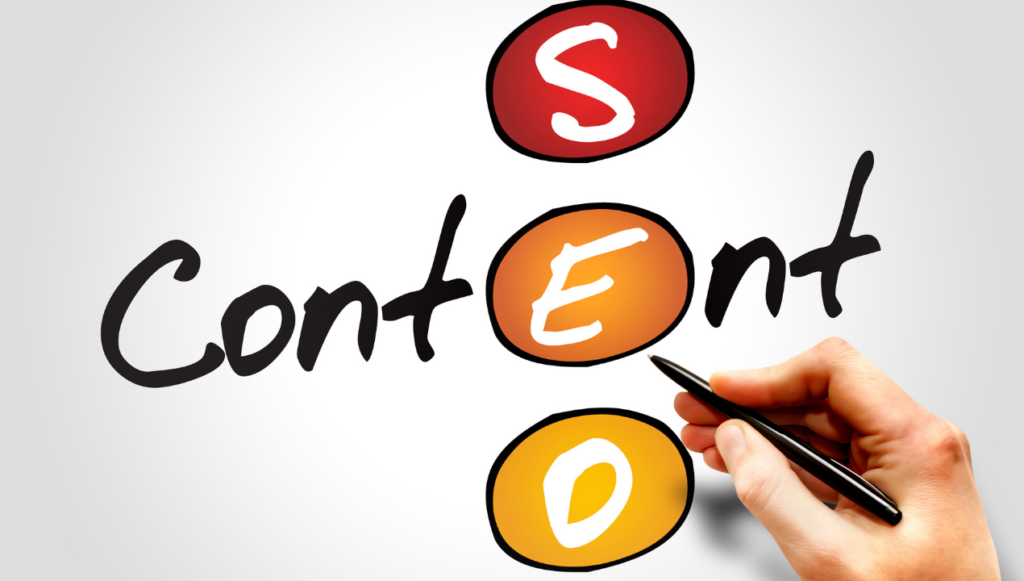What Are The Different Types of SEO Options You Should Know About?

When you buy something through one of the links on our site, we may earn an affiliate commission.
If you're new to the world of SEO, it can be overwhelming trying to figure out what type is best for your website. In this blog post, we'll take a look at the different types of SEO (search engine optimization) and how they can help your website rank higher in search engines. We'll also discuss some tips for optimizing your website.
Whether you're just getting started with SEO or you're looking to improve your current strategy, read on for more information about the different types of SEO!
Contents
On-Page SEO
Anyone who has ever tried to rank a website on Google search knows that it’s not an easy task. There’s a lot of competition out there, and unless you have a solid search engine optimization strategy in place, your website is likely to get lost in the shuffle. One of the most important components of any SEO strategy is on-page optimization.
This is the process of optimizing individual web pages to make them more visible and relevant to search engines. It’s a complex process that involves many different elements, but if done correctly, it can be hugely effective.
Some of the most important on-page optimization techniques include optimizing your website’s meta title tags, meta descriptions tags, header tags, images, and your site's content for target keywords.
In addition, you should also focus on improving your website’s usability and creating engaging and informative content in a blog post that will encourage people to link to your site.
If you can master these techniques, you’ll be well on your way to achieving top search engine rankings.
SEO Content
SEO Content (sometimes referred to as content SEO) is all about creating high-quality, keyword-rich content that will attract visitors from search engines. Your content must be well written and relevant to the target audience in order to be successful. In addition, it should be updated regularly in order to keep up with changes in search engine algorithms, search intent, and user behavior.

By producing engaging, compelling, and entertaining content, you can reach a wider audience and generate more leads for your business.
So if you're looking to improve your SEO strategy, focus on creating great content that your target audience will love.
If you're interested in content marketing, check out our interview with Neil Patel on content marketing and building organic traffic.
Off-page SEO
Anyone who wants their website to rank higher on search engine results pages knows that on-page SEO is important. But what about off-page SEO? Just as the name suggests, off-page SEO focuses on activities that take place outside of a website.
These activities can include link building, social media marketing, and directory submission.
- Link building involves creating links from high-quality websites to your own site. This helps to show search engines that your site is trusted, popular, and relevant.
- Social media marketing helps to build brand awareness and create interest in your website.
- Directory submission involves submitting your website to relevant online directories.
By taking advantage of these activities, you can give your website a boost in the search engine rankings. Don't forget about off-page SEO - it's just as important as on-page SEO!
Dive deeper into link building for niche sites here.
Technical SEO
Technical SEO seems daunting, but it's really just the process of making sure your website is set up in the best way possible to be found by search engine bots. It involves improving the site's architecture, hosting, and coding so that it can be crawled and indexed more easily.
Technical SEO also includes optimizing the website for speed, mobile compatibility, and other user experience factors. While it's not the most exciting aspect of SEO, technical SEO is essential for any website that wants to rank well in search engines.
By taking care of the behind-the-scenes technical details, you can help improve your website's ranking in search engines. And who doesn't want that?
Local SEO
There's no doubt about it - if you want to succeed in today's business world, you need to have a strong online presence and there are a number of types of SEO that businesses can use to improve their ranking in the search engines.
But what if your business isn't focused on the entire world? What if you only service a specific geographical area? In that case, local SEO is what you need.

Local SEO is all about optimizing your website and online content for the specific geographical location that you service. This means making use of local keywords, publishing location-specific content, and claiming and managing your local business listings.
By doing so, you'll make it easier for potential customers in your area to find your business online.
And since nearly 80% of consumers use the internet to research local businesses before making a purchase, that's a huge advantage!
So if you're ready to take your local business to the next level, start focusing on local SEO. It's the perfect way to reach more potential customers in your area and grow your business like never before.
International SEO
If you're looking to take your business global, international SEO is the way to go. This type of SEO takes into account language barriers and cultural differences, making it possible to target potential customers around the world and ensuring that your site is accessible and relevant to customers in multiple countries.
International SEO can help you tailor your content and keywords to each market, ensuring that your message resonates with your audience in each region. In today's global economy, international SEO is a must for any business that wants to compete on the world stage.
Mobile SEO
In today's world, more people are using mobile devices to surf the web than ever before. Phones have become the primary way that people access the internet, so it is essential to make sure that your site is mobile-friendly.

Mobile SEO is all about making sure your website and its content are designed for smaller screens and slower internet speeds. This can include:
- Compressing images
- Using shorter, more concise copy with regular gaps between text
- Ensuring that your content looks the way it should on mobile devices, without the need for horizontal scrolling or zooming, and
- Loads quickly
Research shows that users are unlikely to wait more than a few seconds for a web page to load, so it's essential to ensure that your site is as fast as possible.
By taking the time to optimize your website for mobile devices, you will be able to reach a larger audience and ensure that your website is accessible to everyone.
eCommerce SEO
When it comes to online shopping, customers have high expectations. They want to be able to find what they're looking for quickly and easily, and they don't want to waste time filling out lengthy forms or jumping through hoops. This is where e-commerce SEO comes in.

By optimizing your website, you help search engines understand it better. And you can make sure that your store comes up first when potential customers are searching for products or services like yours. And since customers are more likely to purchase from a store that's easy to find and navigate, e-commerce SEO can have a big impact on your bottom line.
In addition to making it easier for customers to find your store, e-commerce SEO can also help you improve your conversion rate by making it easier for customers to complete purchase.
By ensuring that your product titles and descriptions are clear and concise, you can reduce the chances of customer confusion and reduce abandoned shopping carts.
Likewise, by offering multiple payment options and making shipping options visible upfront, you can make the purchase process as smooth and seamless as possible.
The best types of SEO for your website will depend on a number of factors, but if you're looking to take your online store to the next level, e-commerce SEO is a must.
White Hat SEO
There are a variety of types of SEO, each with its own strengths and weaknesses. Anyone who has ever tried to improve their website's search engine ranking knows that it can be a bit of a minefield.
There are a lot of different techniques out there, and it can be hard to know which ones are going to help you and which ones are going to get you penalized.

White hat SEO is the practice of optimizing your website for search engines in a way that is compliant with their guidelines. This means using techniques that are designed to improve the user experience of your site and make it easier for search engine bots to crawl and index your content.
As a result, you can see significant improvements in your ranking without having to worry about being penalized by Google and other search engines. And isn't that what we all want?
Black Hat SEO
Black hat SEO is the practice of optimizing your website for search engines in a way that is not compliant with their guidelines. This means using techniques that are designed to improve your ranking without improving the user experience of your site.

This can include anything from keyword stuffing to link buying, and it can result in your website being penalized by the search engines. (We're not going to go into depth on black hat techniques here, because that's not how we roll!)
While black hat SEO may offer some short-term gains, it is not a sustainable or ethical long-term strategy. For one thing, it runs the risk of getting your website banned from the search engines altogether.
Additionally, even if you are able to achieve some success with black hat SEO, it is likely to be short-lived as the search engines continue to evolve and crack down on non-compliant websites.
So, what's the bottom line?
If you want to improve your ranking without risking a penalty, stick to white hat SEO. It might take a little longer to see results, but it's worth it in the long run.
Ultimately, if you want to succeed with SEO, you need to focus on creating a great user experience and complying with all the relevant guidelines.
Negative SEO
When it comes to different types of SEO, there is such a thing as playing dirty. Negative SEO is the black hat tactic of trying to harm a competitor's ranking in the search engines. This can be done in a number of ways, from building spammy links to their site to creating duplicate content in an attempt to get them penalized by Google.
While it is possible to hurt a competitor's ranking with negative SEO, it is also risky and can backfire if not done correctly. In addition, it takes a lot of time and effort to execute effectively, which means it may not be worth the SEO efforts for most businesses.
So, if you're thinking about using negative SEO against your competitors, think twice before taking the plunge.
If you think your site might be the victim of negative SEO, check out our article on the topic here.
FAQ
How do I SEO my website?
There are a lot of different methods to optimize your website for search engines. Some of the most important things you can do include:
- Creating high-quality content
- Making sure your website is mobile-friendly
- Ensuring that your titles and descriptions are clear and concise
How can I increase SEO traffic?
There are a number of things you can do to increase organic traffic to your website, including creating compelling content, optimizing your titles and descriptions, and making sure your site is mobile-friendly.
What type of SEO is best?
There is no one-size-fits-all answer to this question. The best type of SEO for your website will depend on a number of factors, including:
- Industry
- Target audience
- Goals
Whichever SEO techniques you decide upon, stick to white hat SEO practices to avoid being penalized by the search engines.
What are some common SEO mistakes?
There are a number of things that can trip you up when you're trying to optimize your website for search engines. Some common mistakes include ineffective keyword research, keyword stuffing, using too much of the same anchor text, poor internal link structure, and creating duplicate content.
How can I improve my SEO ranking?
There is no guaranteed way to improve your ranking in the search engines. However, there are a number of things you can do to improve your chances. This includes effective keyword research, creating high-quality content, making sure your website is mobile-friendly, improving internal links, and using relevant keywords throughout your site.
What is SEO friendly content?
SEO friendly content is content that is optimized for the search engines. This means that it includes relevant keywords, is well-written and free of errors, and is informative and engaging.
Additionally, content is structured in a way that makes it easy for the search engines to index and crawl.

Types of SEO: Which are the best for you?
So, what types of SEO are best for your website? It depends on your goals and the needs of your business. If you're just starting out with SEO, we recommend beginning with basic on-page optimization.
Once you've mastered the basics, you can move on to more advanced tactics like your websites link building and content marketing.
SEO is a complex and ever-changing field, so it's important to stay up-to-date with the latest trends and techniques, but by understanding the basics of SEO knowledge, you can create a strong foundation for your website's optimization.
Want to learn step-by-step how I built my Niche Site Empire up to a full-time income?
Yes! I Love to Learn
Learn How I Built My Niche Site Empire to a Full-time Income
- How to Pick the Right Keywords at the START, and avoid the losers
- How to Scale and Outsource 90% of the Work, Allowing Your Empire to GROW Without You
- How to Build a Site That Gets REAL TRAFFIC FROM GOOGLE (every. single. day.)
- Subscribe to the Niche Pursuits Newsletter delivered with value 3X per week
My top recommendations

















